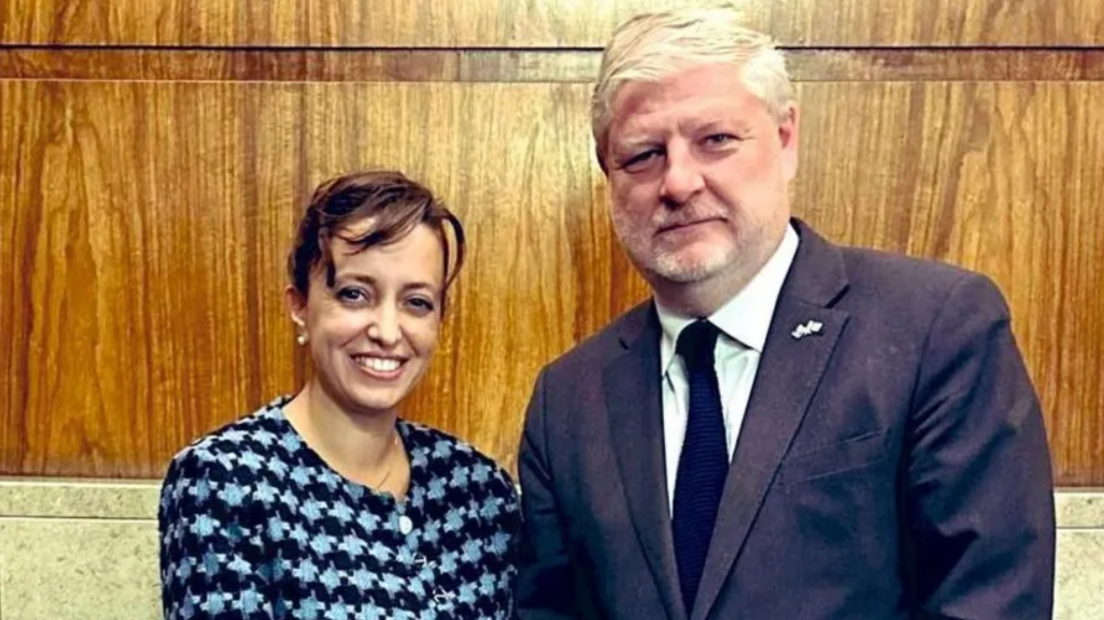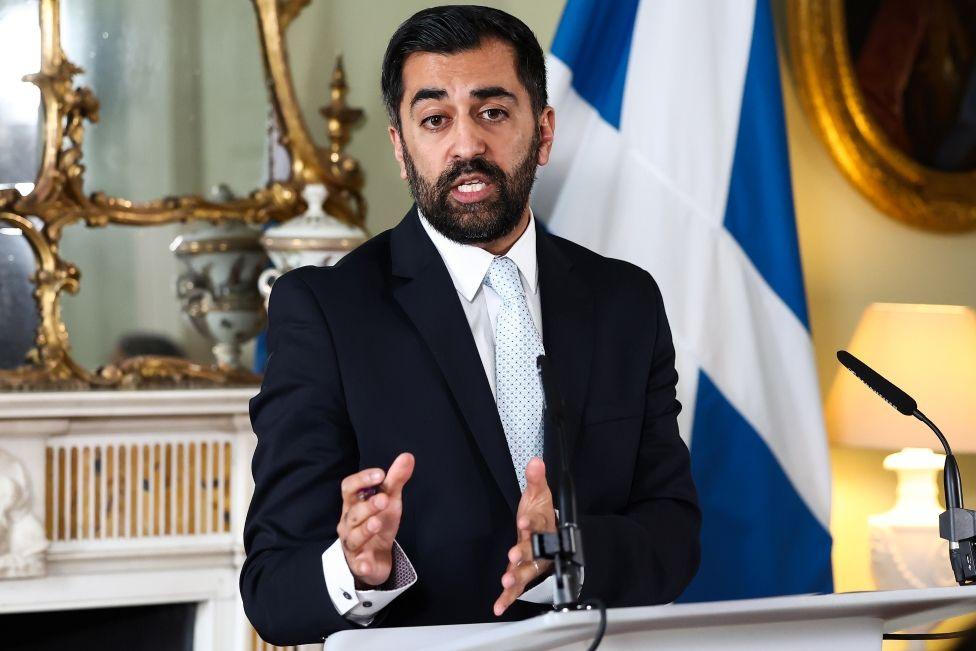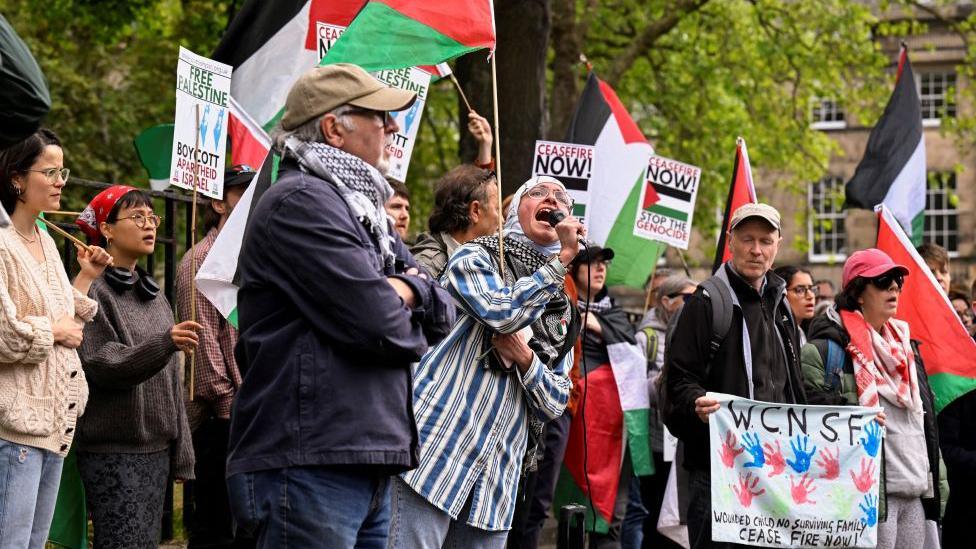Will sorry save Robertson after Israeli meeting?

Daniela Grudsky posted a photo on social media of the meeting with Angus Robertson
- Published
Just over a week ago, the Israeli deputy ambassador to the UK posted a photograph on social media that sparked fury within the SNP.
Daniela Grudsky smiled as she posed with Scotland's external affairs secretary. She thanked Angus Robertson for "welcoming us to wonderful Scotland", adding that she was "looking forward to cooperating in the fields of technology, culture and renewable energy".
This, to many both inside and outside the party, was an outrage.
SNP politicians had spent months pushing their position on Gaza - pressing for an immediate ceasefire, an end of arms sales to Israel, and the recognition of the Palestinian state.
They had urged others to "find their moral compass", and yet here was a senior member of the Scottish government discussing areas of "mutual interest" with a representative of the Israeli administration.
Criticism has been widespread inside the party, and expressed both publicly and privately at all levels. From grassroots members, to MSPs, MPs, former - and even current - ministers.
For some, the decision to take the meeting at all was wrong. Others accept - as Mr Robertson argues - that this was an opportunity to put the government's views directly to the Israelis. However, they were concerned about the scope of the discussions, and the notion there could be any cooperation between the two countries.
Certainly there has been immense pressure on the Scottish government to explain itself. And its handling of the row has undoutedly prolonged it.
For more than a week after the deputy ambassador's post, the criticism grew. The first minister had intervened, acknowledging the anger but doubling down on the decision to take the meeting. But questions remained over just how robust Mr Robertson had been in his condemnation of Israel's conduct.
Comments from the SNP backbench MSP John Mason - who held his own meeting with the deputy ambassador - that there was "no genocide" in Gaza resulted in him being suspended from the party, and only served to heighten things.

Former First Minister Humza Yousafsaid Mr Robertson had "clearly listened and reflected on the anger and upset"
While the anger was certainly palpable, there was no sense in government that Mr Robertson's position was becoming untenable. It was clear however that he would need to speak out.
And so came an apology for not limiting the talks to a call for an immediate ceasefire, with confirmation no further meetings would take place until the situation in Gaza changes.
It was an attempt to get on the front foot ahead of the SNP's conference at the end of this month - to be contrite and to take the heat out of what was becoming an increasingly public backlash.
So will it be enough?
Mr Robertson says he has not considered quitting his ministerial post. And, given he has the backing of the first minister, it would seem unlikely he's going anywhere soon.
Former First Minister Humza Yousaf, who was praised for his own handling of the Gaza issue, said Mr Robertson had "clearly listened and reflected on the anger and upset".
Aside from the Scottish Greens, most of that anger has come from within his own party, so the external affairs secretary is unlikely to come under cross-party pressure when Holyrood returns in September.

Labour doesn't have its own troubles to seek when it comes to Gaza, with Sir Keir Starmer facing protests during a recent visit to Scotland for his handling of the issue.
To criticise the Scottish government would leave it open to accusations of hypocrisy.
The Conservatives have also stayed out of the row. Indeed Scottish Tory leadership hopeful Russell Findlay said he would also have taken the meeting.
It's not the first time Mr Robertson has faced criticism over his handling of his brief.
A visit to China last year to promote business and tourism was called into question by one of the SNP's MPs, given the country's human rights record.
Some argue that engaging with those who you don't agree with is part and parcel of diplomacy - all part of the external affairs secretary's job.
However, sensitivities around the politics of the Middle East are such that some won't be satisfied with a pledge of no further meetings with the Israelis.
And Mr Robertson might find the criticism from this particular incident difficult to shake off.
The party conference could be another flashpoint, with one SNP branch reportedly planning to put pressure on him with a condemnatory motion.
It's unclear whether it will reach the conference floor, but at a time when the SNP leadership wants to unite its party, it will be keen to move on from another issue that has caused further division.